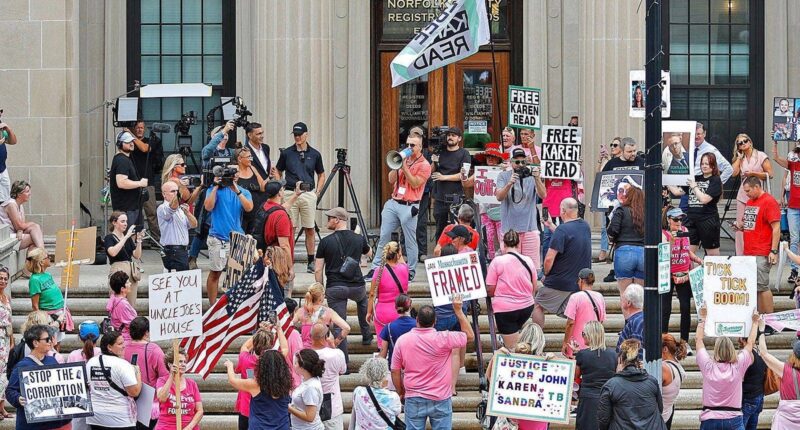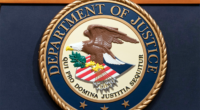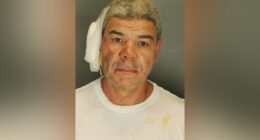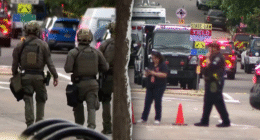Four protesters have filed a lawsuit against Judge Beverly Cannone concerning a “buffer zone” that they argue unfairly distances them from the courthouse where Karen Read’s retrial for murder and other charges is taking place in Massachusetts.
The lawsuit claims that Judge Cannone implemented the order primarily to suppress criticism aimed at her, citing that the only documented protests have been conducted by the plaintiffs holding signs criticizing her.
These plaintiffs, Jason Grant, Allyson Taggart, Lisa Peterson, and Samantha Lyons, are residents of Massachusetts. The legal action also includes Geoffrey Noble, the superintendent of the state police, and Michael d’Entremont, the police chief in Dedham, where the courthouse is situated.
In their lawsuit, they are asking a federal court to declare the “buffer zone” an unconstitutional “prior restraint” on free speech and an injunction, plus legal fees.

Karen Read giving John O’Keefe a kiss on the side of his head in an undated photograph. (Courtesy of Karen Read)
Read is charged with second-degree murder, manslaughter and leaving the scene of a deadly accident. She could face up to life in prison if convicted of the top charge.
Read denied the charges, pleaded not guilty and claimed that she is being framed as part of a police cover-up.

Officer John O’Keefe poses for his official headshot. O’Keefe’s girlfriend, Karen Reed, is currently on trial for a second time on murder and other charges after he was found dead outside of a Massachusetts home in January 2022. (Boston Police Department)
Cannone warned potential jurors at the start of jury selection Tuesday not to be influenced by protesters outside.
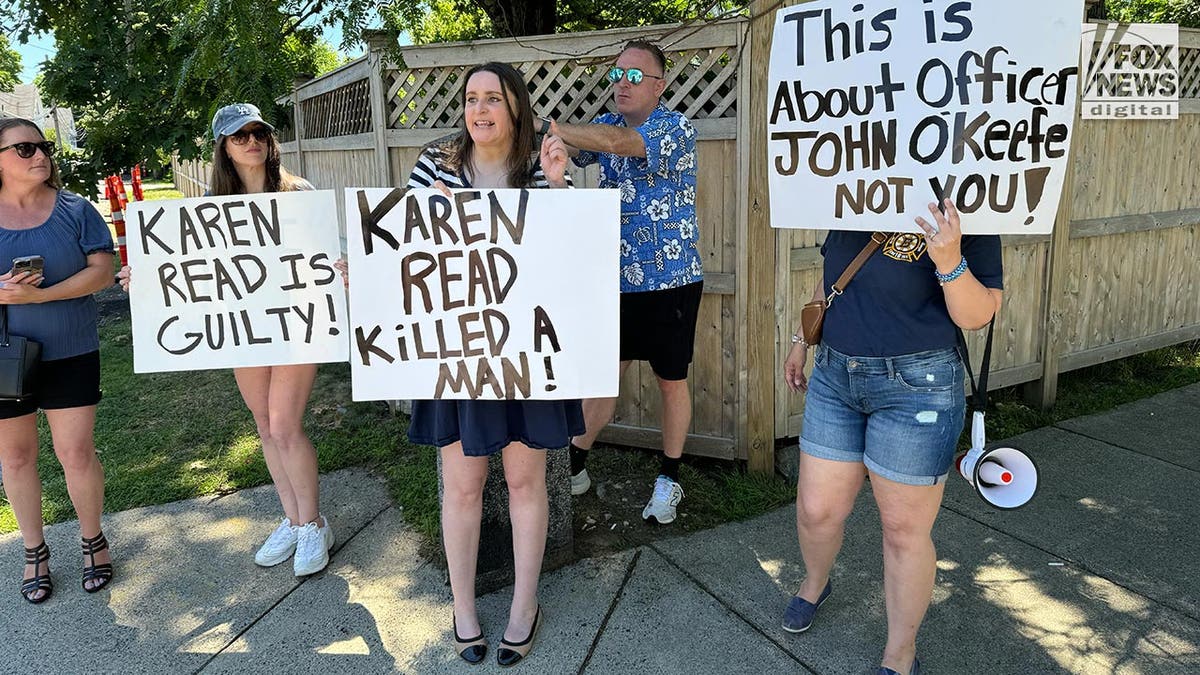
Critics of Karen Read gather outside the courthouse in Dedham, MA on Friday, June 28, 2024. Read is facing three charges, including second-degree murder of her Boston police officer boyfriend John O’Keefe in January 2022. (Patriot Pics/Backgrid for Fox News Digital)
“John Adams said that we are a government of laws, not of men, and that the law must be deaf to the clamoring of the public,” she said, referring to the Founding Father with deep Boston roots.
“He meant that while the public opinion about a given subject may ebb and flow, the law must be steady, reliable, and even-handed.”
